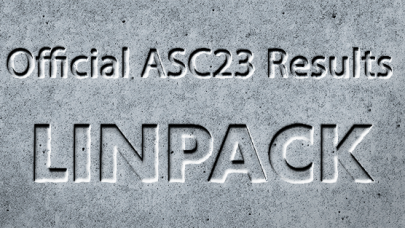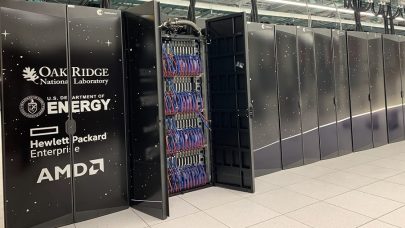
EU Grabs Arm for First Exaflops Supercomputer, x86 Misses Out
October 4, 2023
The configuration of Europe's first exascale supercomputer, Jupiter, has been finalized, and it is a win for Nvidia and a disappointment for x86 chip vendors In Read more…

ASC23: LINPACK Results
May 30, 2023
With ISC23 now in the rearview mirror, let’s get back to the results from the ASC23 Student Cluster Competition. In our last articles, we looked at the compet Read more…

Turing Award Winner Jack Dongarra Reflects on Career Ahead of ISC
May 19, 2023
The selection of Jack Dongarra as the recipient of the 2021 Turing Award was a well-deserved recognition of his invaluable contributions to the field of high pe Read more…

Triumph & Tragedy with HPL/HPCG
March 9, 2023
HPL. HPCG. Bookends. One will show you the best possible performance from your cluster while the other will show you the worst. Running and optimizing these t Read more…

From Exasperation to Exascale: HPE’s Nic Dubé on Frontier’s Untold Story
December 2, 2022
The Frontier supercomputer – still fresh off its chart-topping 1.1 Linpack exaflops run and maintaining its number-one spot on the Top500 list – was still v Read more…

Jack Dongarra: A Not So Simple Matter of Software
November 16, 2022
For a few moments, the atmosphere was more Rock Concert than Supercomputing Conference with many members of a packed audience standing, cheering, and waving signs as Jack Dongarra took the stage to deliver the annual ACM Turing Award lecture at SC22. Read more…

At PEARC22: Moving Beyond Exascale, Harnessing Artistic Expertise
July 15, 2022
The direction that exascale supercomputing will need to follow and the continuing value of visual and other non-computational experts in computer visualizations were the focus of the final two plenary sessions at the PEARC22 conference in Boston on July 13. Jack Dongarra, director of research staff and professor at the Oak Ridge National Laboratory and the University of Tennessee, Knoxville... Read more…

Top500: No Exascale, Fugaku Still Reigns, Polaris Debuts at #12
November 15, 2021
No exascale for you* -- at least, not within the High-Performance Linpack (HPL) territory of the latest Top500 list, issued today from the 33rd annual Supercomputing Conference (SC21), held in-person in St. Louis, Mo., and virtually, from Nov. 14–19. "We were hoping to have the first exascale system on this list but that didn’t happen," said Top500 co-author... Read more…

- Click Here for More Headlines

Whitepaper
Transforming Industrial and Automotive Manufacturing
In this era, expansion in digital infrastructure capacity is inevitable. Parallel to this, climate change consciousness is also rising, making sustainability a mandatory part of the organization’s functioning. As computing workloads such as AI and HPC continue to surge, so does the energy consumption, posing environmental woes. IT departments within organizations have a crucial role in combating this challenge. They can significantly drive sustainable practices by influencing newer technologies and process adoption that aid in mitigating the effects of climate change.
While buying more sustainable IT solutions is an option, partnering with IT solutions providers, such and Lenovo and Intel, who are committed to sustainability and aiding customers in executing sustainability strategies is likely to be more impactful.
Learn how Lenovo and Intel, through their partnership, are strongly positioned to address this need with their innovations driving energy efficiency and environmental stewardship.
Download Now
Sponsored by Lenovo
Whitepaper
How Direct Liquid Cooling Improves Data Center Energy Efficiency
Data centers are experiencing increasing power consumption, space constraints and cooling demands due to the unprecedented computing power required by today’s chips and servers. HVAC cooling systems consume approximately 40% of a data center’s electricity. These systems traditionally use air conditioning, air handling and fans to cool the data center facility and IT equipment, ultimately resulting in high energy consumption and high carbon emissions. Data centers are moving to direct liquid cooled (DLC) systems to improve cooling efficiency thus lowering their PUE, operating expenses (OPEX) and carbon footprint.
This paper describes how CoolIT Systems (CoolIT) meets the need for improved energy efficiency in data centers and includes case studies that show how CoolIT’s DLC solutions improve energy efficiency, increase rack density, lower OPEX, and enable sustainability programs. CoolIT is the global market and innovation leader in scalable DLC solutions for the world’s most demanding computing environments. CoolIT’s end-to-end solutions meet the rising demand in cooling and the rising demand for energy efficiency.
Download Now
Sponsored by CoolIT
Advanced Scale Career Development & Workforce Enhancement Center
Featured Advanced Scale Jobs:
HPCwire Resource Library
HPCwire Product Showcase
© 2024 HPCwire. All Rights Reserved. A Tabor Communications Publication
HPCwire is a registered trademark of Tabor Communications, Inc. Use of this site is governed by our Terms of Use and Privacy Policy.
Reproduction in whole or in part in any form or medium without express written permission of Tabor Communications, Inc. is prohibited.
























